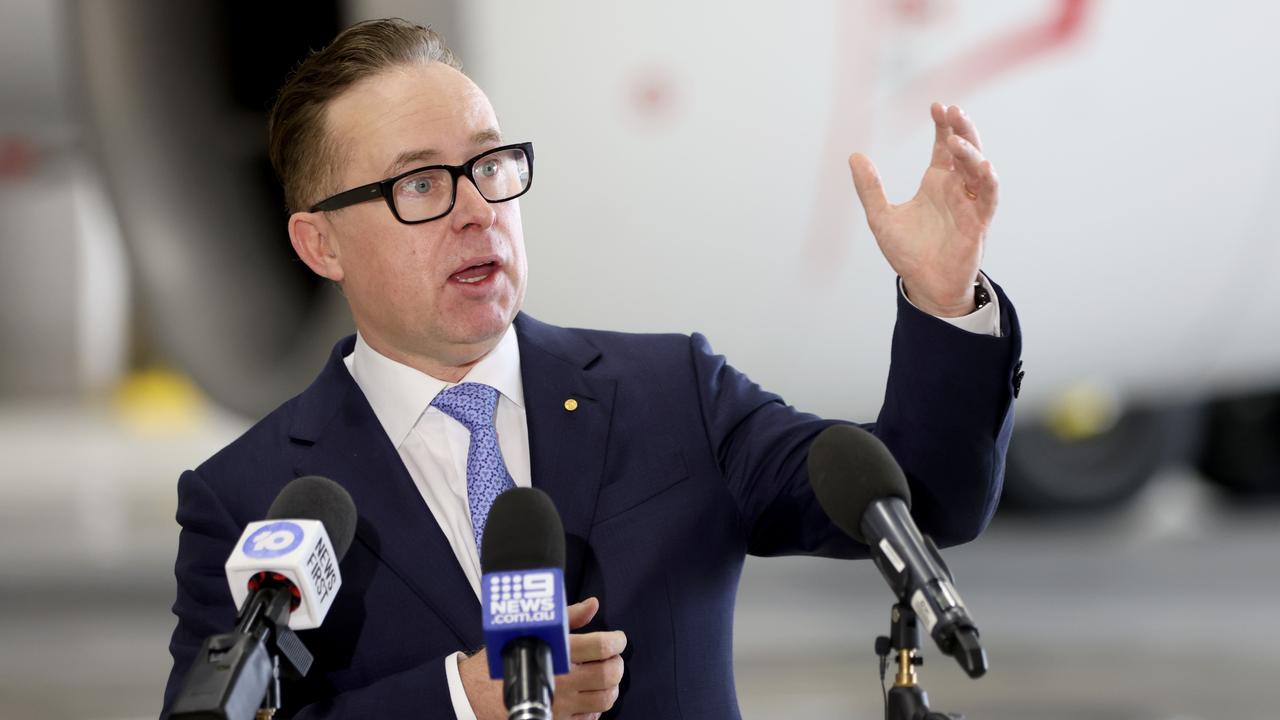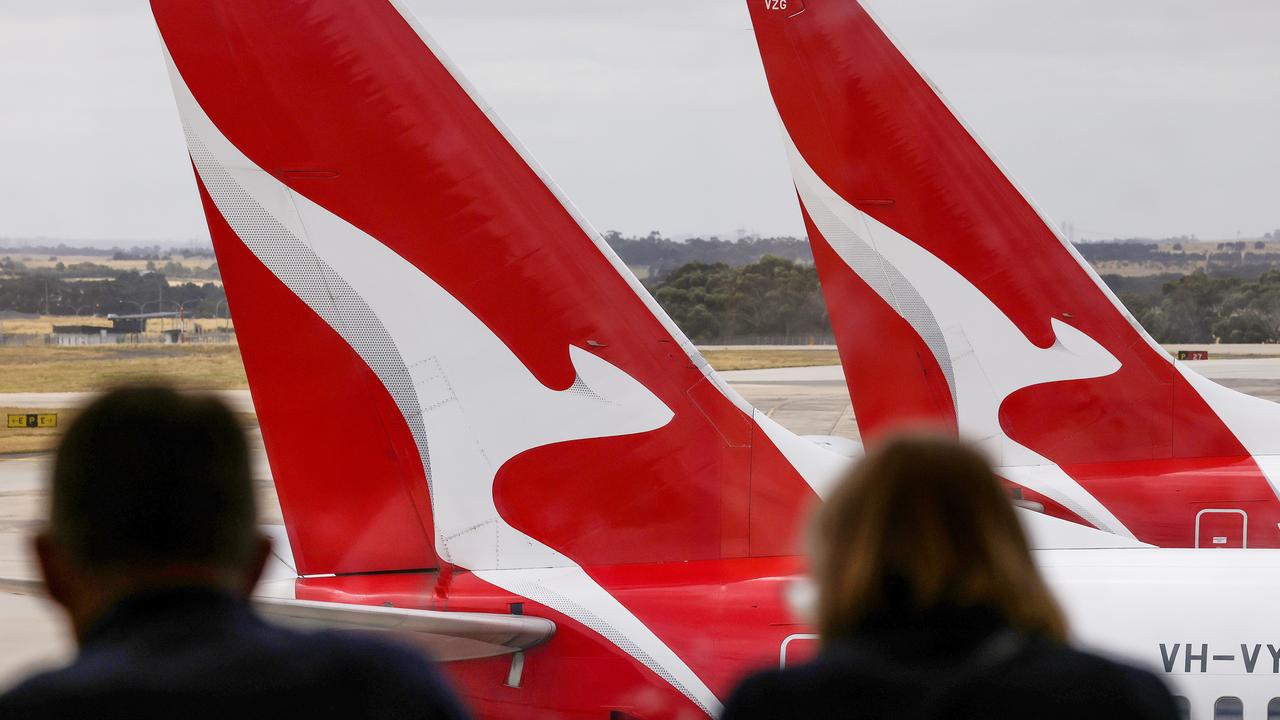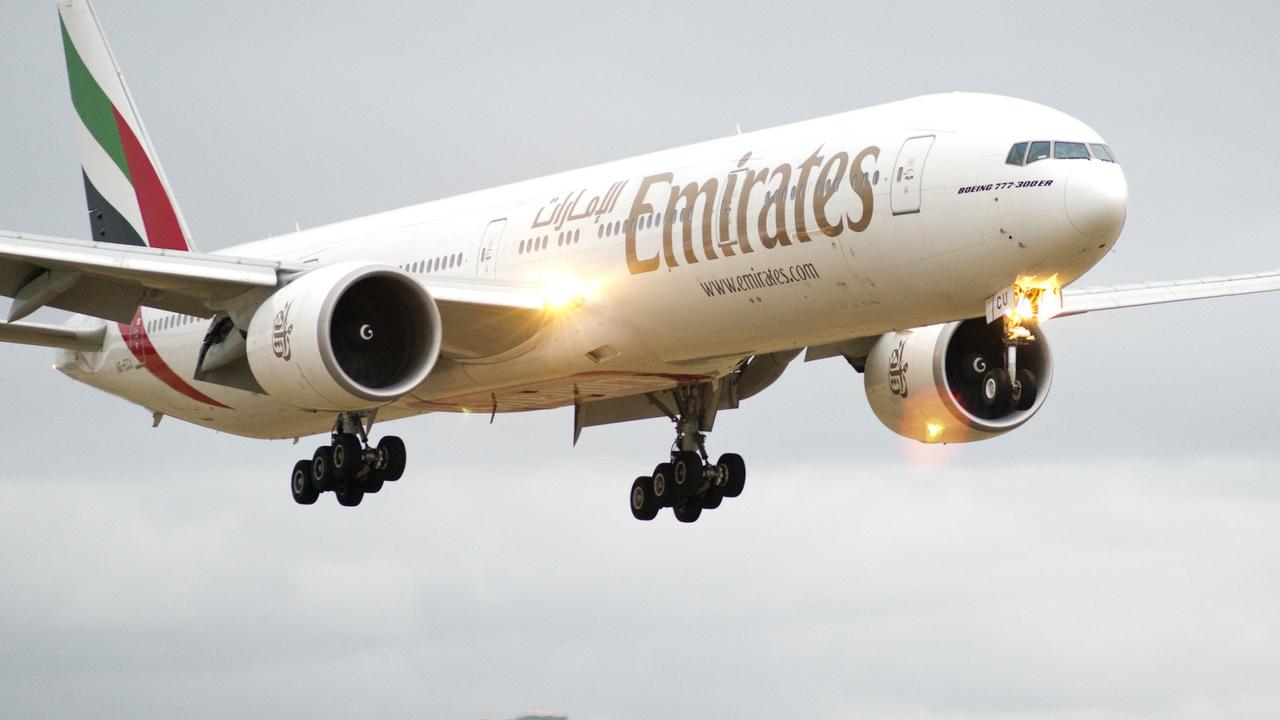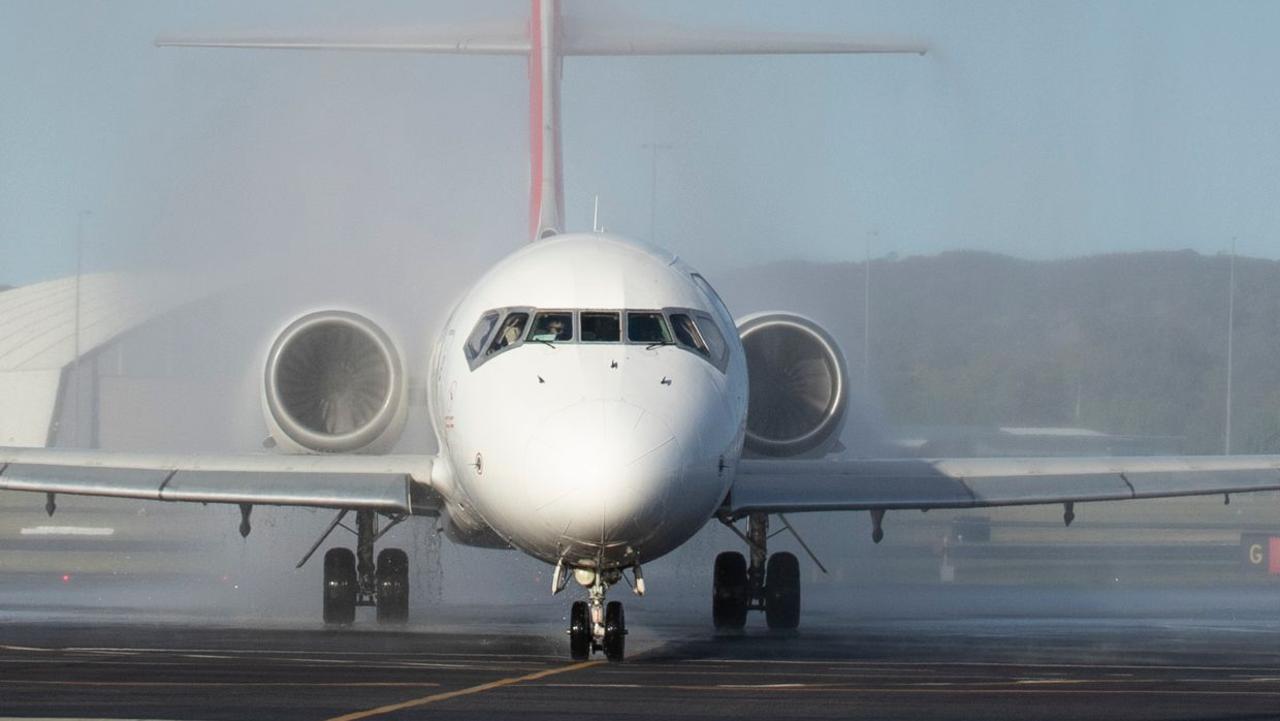Qantas reveals new jobs plan amid $1bn profit and customer frustration
Qantas has revealed a major jobs and growth plan one week after the company announced a record $1bn half-year profit.
Qantas has announced a major jobs and growth plan after revealing a staggering record billion-dollar half-yearly profit last month.
The airline expects to create more than 8500 new high-skill aviation jobs as well as hire more than 30,000 frontline staff over the next 10 years.
Accounting for attrition, Qantas expects to boost its overall staff from 23,500 to 32,000 by 2033.
This comes in the wake of a vexed public reception to the Group’s impressive profits, as customers question lingering high airfares amid the worsening cost of living crisis.
Qantas chief executive Alan Joyce said it was “the strength of the demand” that helped the airline bounce back post-Covid.

“Fares have risen because of higher fuel costs but also because supply chain and resourcing issues meant capacity hasn’t kept up with demand,” he said.
Qantas has also announced plans to purchase up to 299 narrowbody and 12 widebody aircraft over the next decade.
“Aviation is so important to a country like Australia and you need a big skills pipeline to power it,” Mr Joyce said.
“It’s a whole ecosystem that pilots and engineers, in particular, make their way through, and the long-term skills base required means it relies on constant renewal.
“Qantas is already the single biggest investor in aviation skills in Australia, especially when you consider the constant training of our pilots, engineers and cabin crew just to maintain the status quo.”
Having already established a pilot academy, Qantas revealed that it would also open a Qantas Group engineering academy in Australia, able to produce “up to 300 trained people a year”.

Mr Joyce said the company would begin putting “downward pressure on fares” now that there was the opportunity to add more “capacity”.
High fare prices were blamed on fuel price increases, supply chain issues and high levels of demand, as travel remained a high priority post-pandemic.
Airfares remain around 20 per cent higher than pre-pandemic levels, with Qantas expecting domestic and international capacity to recover by June this year and 2024 respectively.
“We have more aircraft arriving every month, and that means we need more pilots, engineers, cabin crew and others,” Mr Joyce said.
“Over the next 18 months, we expect to create more than 2000 new jobs plus replacing natural attrition, so if you’ve ever wanted to work in aviation or at the national carrier, now’s a great time to join.”
The new jobs, training and growth plan will recruit 4500 cabin crew, 1600 pilots, 800 engineers and 1600 other roles over the next decade.



